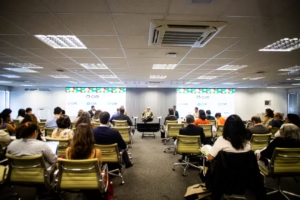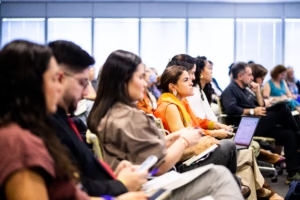Organizations that make up the People’s Summit, an articulation that brings together around 1,100 social movements and civil society organizations, took part in the launch of the Technical Chambers of Brazil’s Interministerial Committee on Climate Change (CIM), as well as in the first meeting of the Consultative Chambers, which include the Chambers of Social Participation (CPS), Scientific Advisory (CAC), and Interfederative Coordination (CAI). The challenge of this participation is to ensure that public policies advance rights rather than contribute to violations of the rights of peoples.
The launch and the first meeting took place this Wednesday and Thursday, the 10th and 11th, respectively, in the Federal District. According to the government, the purpose of the meetings was to bring the federal government closer to civil society organizations, academia, and local representatives, ensuring that diverse perspectives can reach the decision-making level of the Committee.
These consultative spaces within the CIM are considered strategic, as they allow social movements to follow and influence policy formulation and monitoring, such as through the CPS. In times of denialism, the CAC plays a role in ensuring that decisions are grounded in reliable scientific knowledge, while the CAI fosters coordination among the Union, states, and municipalities, strengthening environmental federalism.
The participation of organizations articulated within the People’s Summit in these spaces highlights the importance of connecting civil society voices to the design and implementation of climate policies, ensuring that federal-level decisions take into account the needs and solutions proposed by territories.
Letícia Tura, national director of Fase and member of the Political Commission of the People’s Summit, warns:
“Some of the challenges faced by civil society in these technical chambers are to ensure that climate public policies serve as instruments for the guarantee and defense of rights, and not as instruments of rights violations. That civil society’s proposals are taken into account and put into practice, and that the solutions coming from the territories are recognized in domestic public policies to address climate change.”
Photos: GIZ Juliana Caribé


